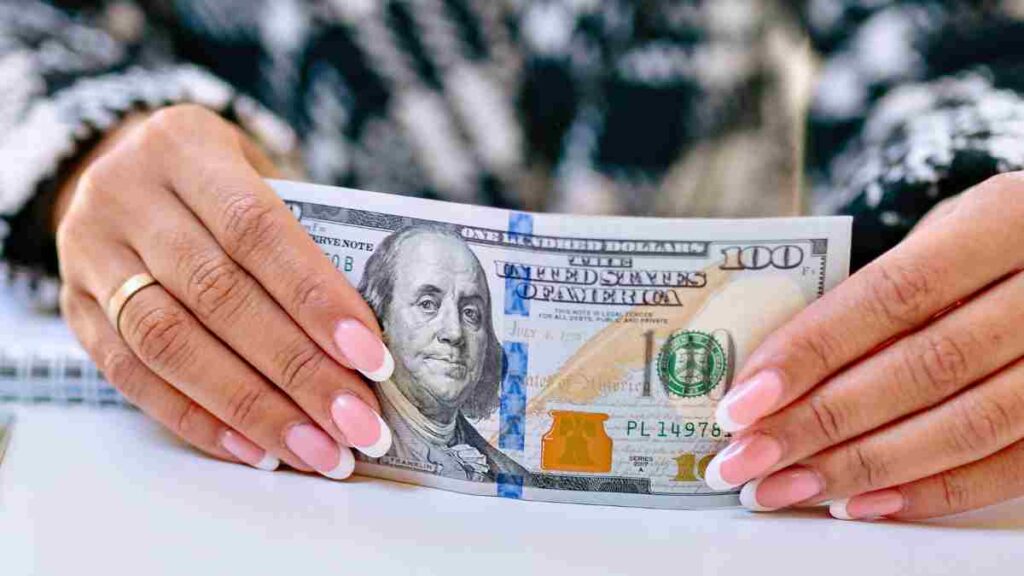Will 100-dollar bills disappear? In today’s rapidly evolving financial landscape, the way we handle money is changing. With the majority of transactions being digital, it’s no surprise that the role of cash is being questioned. Let’s delve into the intriguing prospect of removing the $100 bill from circulation.
According to the Federal Reserve Bank, a staggering 60 percent of financial transactions are conducted using either a debit or credit card. This reflects a growing trend as more people lean towards convenient, cashless payment options. While cash remains a staple, it’s only the third most popular payment method in the United States.
100-dollar notes withdrawal proposal
Prominent voices like Harvard University’s economics professor, Kenneth Rogoff, are advocating for the withdrawal of the $100 bank note. Rogoff, who is also a chess Grandmaster, has analyzed the data and drawn some compelling conclusions.
- Over half of the $100 bills are held overseas, suggesting their use in international and possibly illicit activities.
- Despite this, there were enough $100 notes in 2022 for every American to possess 55 of them.
Rogoff’s insights raise important questions about the necessity and impact of high-denomination banknotes in our economy. As digital payments become the norm, the role of the $100 bill may need reevaluation.
In the fascinating world of currency and economics, the role of the 100-dollar bill often sparks intriguing debates. Renowned economist Rogoff argues that a significant portion of these bills is utilized in the global underground economy and for illicit purposes. He also sees all fiat paper money as a hindrance to effective monetary policy.
The Curious Case of the 100-Dollar Bill
The 100-dollar bill is not just a piece of currency; it is a target for counterfeiters around the world. Notably, North Korea has been accused of producing so-called “super note” 100-dollar bills, which are nearly indistinguishable from the real thing. This highlights the ongoing challenges in maintaining the integrity of high-denomination currencies.
The Denomination Effect
Adcock Solutions introduces us to the concept of the ‘denomination effect’, which is a cognitive bias associated with currency. It suggests that individuals are less likely to spend larger currency denominations compared to the equivalent value in smaller denominations. This behavior has significant implications for consumer spending habits.
Helen Colby, an Assistant Professor of Marketing at the Kelley School of Business, Indiana University, conducted a study on this phenomenon. Her research revealed that college students are notably less inclined to purchase items when they have a 100-dollar bill compared to having five $20 bills.
According to Colby, the psychological impact of parting with a larger denomination plays a crucial role in spending decisions.
- College Students’ Spending Habits: Colby’s study shows a reluctance to spend larger denominations.
- Cognitive Bias: The denomination effect influences how people perceive the value of their money.
- Impact on Consumer Behavior: Understanding this effect can help businesses strategize their pricing and marketing.
Furthermore, Colby notes an interesting comparison: “If you spend money on a credit card, you get that same card back after the transaction.” This contrasts with cash, where the physical act of handing over a bill can feel more significant.
How would the withdrawal of $100 bills affect the underground economy?
Here is a summary of how the withdrawal of $100 bills could affect the underground economy, based on the provided search results:
- Withdrawing $100 bills could cut tax evasion and crime in the underground economy. But, it may do more harm than good overall.
- A large portion of $100 bills, perhaps 75-80% of those held domestically, are likely used for tax evasion and crime rather than legal purposes. Eliminating them could inhibit these underground activities.
- However, research suggests that the costs of lost output from ending large bills could exceed the benefits of reduced tax evasion. This would make people worse off.
- Seigniorage revenues to the government from cash demand could decline significantly if anonymous cash is restricted, though this may be offset by more taxes being paid.
- A quick move to cashless payments might raise costs for retailers due to credit card fees. However, allowing people to have Federal Reserve accounts could ease this burden.
- There are also civil liberties concerns about the government being able to trace more transactions if anonymous cash is reduced.
- To avoid pushing activity to foreign currencies, we should coordinate the withdrawal of large bills across major global currencies.
